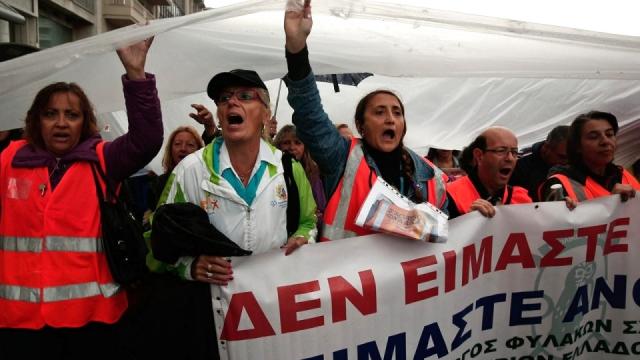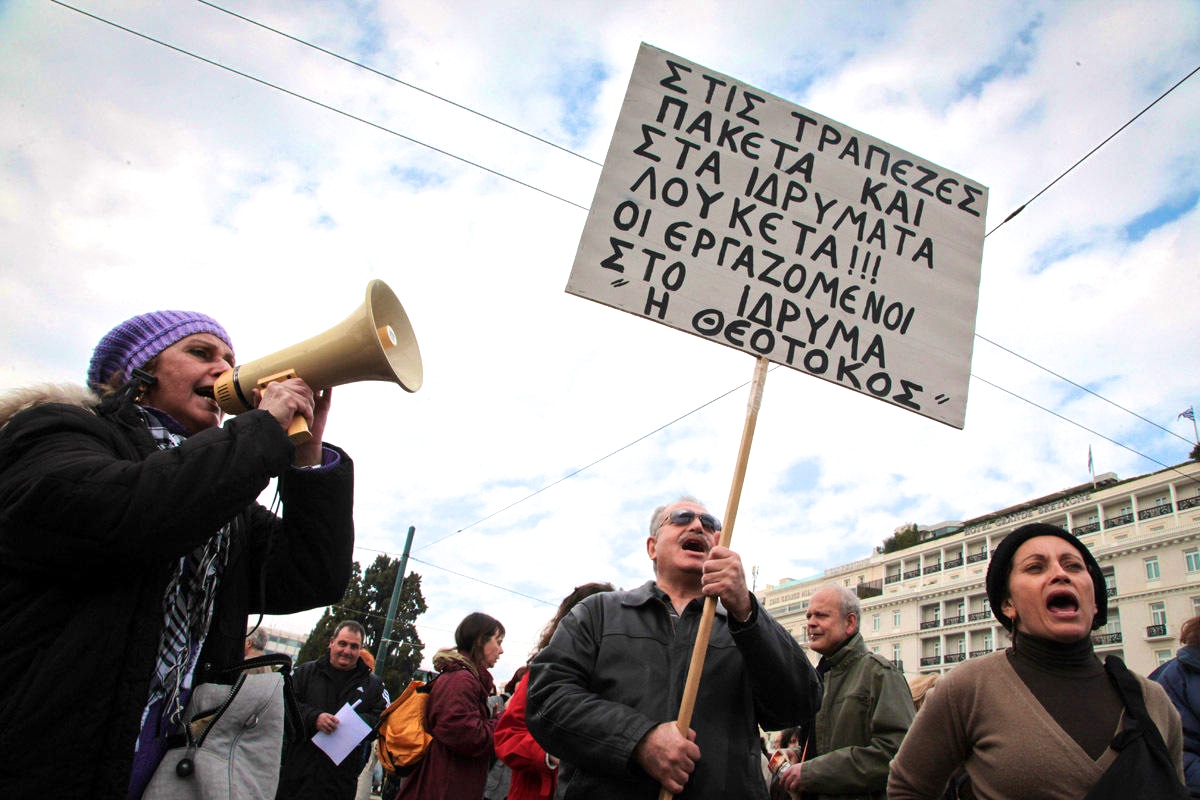
Thousands of Greek workers went on strike and marched to the country’s parliament in pouring rain Wednesday to protest against measures austerity imposed by foreign lenders, whose inspectors were in Athens to review the country's bailout.
The 24-hour general walkout by Greece's largest public- and private-sector unions shut schools and disrupted flights – but far fewer people took to the streets compared with previous protests, as heavy downpours hit Athens.
The "troika" of the European Commission, European Central Bank and the International Monetary Fund inspectors resumed their latest bailout review on Tuesday.
"Enough is enough. We've lost our dignity." said Fotini Halikiopoulou, a 55-year old public sector employee. "We've sacrificed everything and they (the troika) are not budging an inch."
School teachers and doctors as well as municipal and transport workers were among the groups that joined the strike. Air traffic controllers stopped work for three hours, and journalists stopped work for five hours.
But the bleak weather and despondency among Greeks inured to protests against the erosion of jobs and benefits meant the marches largely fizzled, with two unions canceling plans for a coordinated march to parliament because of the rain.
About 15,000 protesters, mainly from the Communist group PAME and leftist parties, rallied at central Syntagma square where police and demonstrators have clashed in the past.
They held banners reading "No more sacrifices," and chanted "Don't bow down!"
Labor unions fear Greece will have to impose further wage and pension cuts to meet its bailout targets in the coming years, union officials said.
Greece and its lenders are at odds over the size of a projected budget hole next year. The unions are also protesting against planned public sector job cuts and privatizations.
"We'll keep fighting," said Stathis Anestis, general secretary of the private-sector union GSEE. "We warn the government that people will not tolerate any more austerity."
Greece is in its sixth year of a recession, and repeated rounds of austerity have squeezed households and sent unemployment to record highs of over 27 percent.
GSEE and public-sector union ADEDY have brought people to the streets repeatedly since the crisis erupted in 2009, with turnout in some demonstrations topping 100,000. The protests have tested the government's will to implement spending cuts and reforms prescribed by the European Commission, European Central Bank and the International Monetary Fund.
But this year protests have been dampened by a growing sense of resignation among Greeks. Still, anger remains high against austerity policies identified with Germany, and Prime Minister Antonis Samaras's coalition government has rejected further across-the-board wage and pension cuts or tax increases to fill any budget gaps.
"Society cannot take it, the economy cannot take it, and it is not even required by the country's current financial situation," Samaras said in a television interview Tuesday.
3 WAYS TO SHOW YOUR SUPPORT
- Log in to post comments












